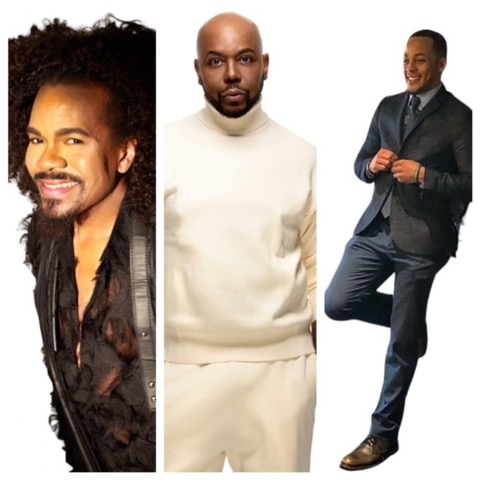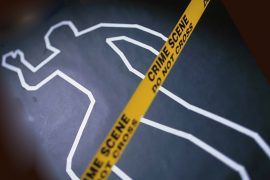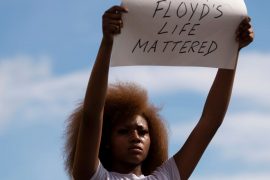Mental health has long been stigmatized within the Black community, especially among black men. Oftentimes, men are taught to internalize their feelings and to not show emotion. Although therapy within our community is on the uptick, it is still something that a lot of Black men are apprehensive about.
Chris Curse is an international beauty expert and stylist, educator, television host, and owner of Chris Curse & Co.
A.J. Johnson is a celebrity stylist, designer, actor, and founder of House of AJ.
Calvin King is a community leader, impact mentor, playwright, and co-founder of the podcast This, That, and The III.
N’DIGO recently sat down with all three men to discuss their individual experiences ahead of an upcoming panel discussion on stress and mental health in the Black male community, which will take place at Momentum Coffee in the South Loop on June 15.
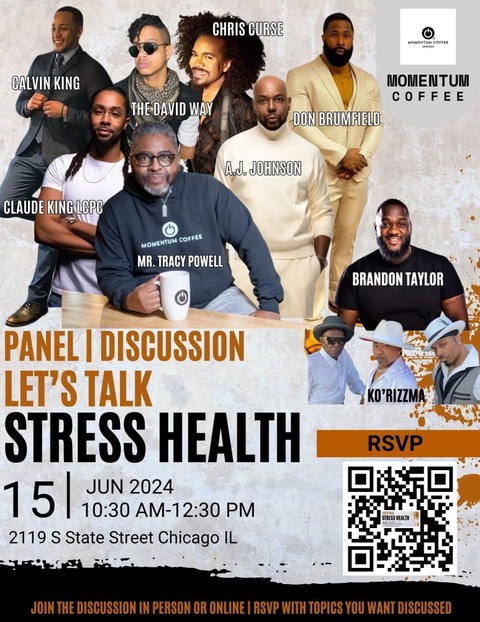
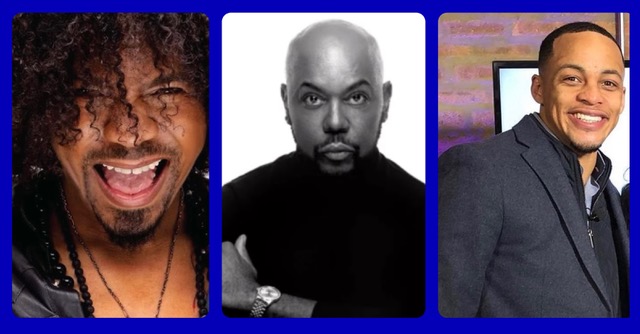
N’DIGO: Can you give a sentence or two about the common stresses you face in your professional field?
Chris Curse: As a beauty professional, entrepreneur, consultant, and philanthropist, I often struggle with the balance of time that each role requires and how to maintain the integrity and success necessary for a comfortable life experience.
A.J. Johnson: Two common stresses that I experience in my field are: 1. Constantly facing rejection or being turned down for an audition, network, or production company. 2. Multi-tasking and juggling multiple job titles, from acting salon owner to fashion designer.
Calvin King: In my professional field of marketing, I often find common stresses that occur when attempting to collaborate effectively with diverse people. personality types and lived experiences. I also experience common stress when it comes to ensuring those who identify with and ultimately represent are authentically considered within our work. I find both of these “stressors” to be a necessary challenge that I look forward to leaning into on a daily basis.
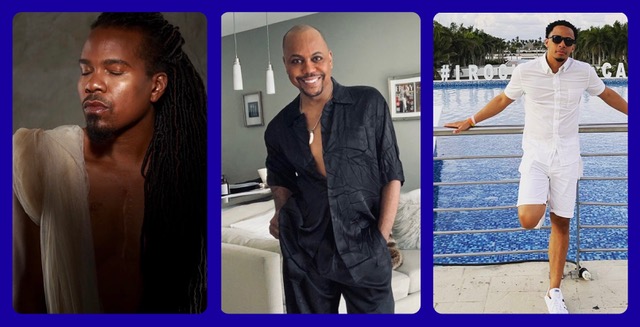
What do you do for yourself in terms of self-care?
Chris: My current self-care routine is to worry less about how I am perceived and increase the value of how I perform. I limit my voice on Sundays as much as possible to take a break from even hearing myself speak.
A.J.: For self-care, I do a few things, including meditating first thing in the morning for at least 10 minutes, working out, hiking, bike riding, or walking, and I also get massages bi-weekly, facials monthly, and manicures occasionally. It’s important to pamper yourself and take care of your temple/body.
Calvin: My self-care consists of remembering to pray, praise, meditate, reflect, and PREflect.
Do you have a personal mantra or something you remind yourself of when stress builds up?
Chris: When stress builds, I reach out to a trusted confidant to share and release and remind myself to stop and take a deep breath, say positive things, and not put negative language into the universe. I also remind myself that everyone may not be clear on my truth or my plan, but positivity is required to plan my work and work on my plan. Communication is my gift, so keep sharing it.
A.J.: I don’t really say I have a mantra, but I do have to remind myself constantly, I look in the mirror and say to myself that I am great. I am the best me that I know how to be, What’s for me is for me .And I am so in tune with myself that I have a strong intuition early on to know if something is affecting me physically and mentally and there is no job or money on this earth that is important than me.
Calvin: Absolutely! “Things don’t happen TO me, and they happen for me.”
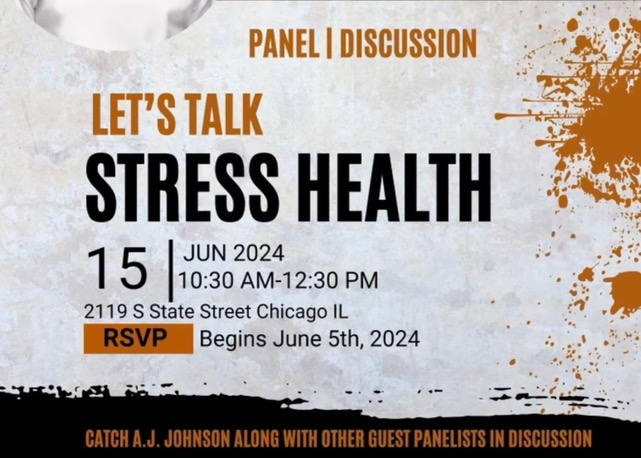
Thoughts on the stigma of black men and therapy?
Chris: The stigma about Black men and therapy makes sense to me because the space has historically not existed for vulnerability and differences to be well received. Many of the activities we engage in growing up encourage strength, athleticism, hustle, etc., and we lack resources and education around physical (internal) and mental health.
A.J.: The Black man in therapy has always had a bad rap for as long as I can remember. Unfortunately, it comes off as soft, weak, or “just something that white men would do.” Most black men were taught if there were any issues that you’re going through, they just man up, keep them to themselves, And never share them with anyone; they didn’t ever cry. You keep it in and keep it moving.
Calvin: I live in a world where this stigma doesn’t exist. In fact, it’s almost looked down upon in my circles if you’re not either currently in therapy or seeking a therapist as a person, especially a black person.
Best advice you’ve received?
Chris: The best advice I ever received is that you must first seek to understand before being understood. The best advice I give is that “you must be self-aware in order to be socially aware.”
A.J.: The best piece of advice that I’ve ever gotten was actually from my father (may he continue to RIP). If it brings you pleasure and does not hurt anyone, just do it no matter what nobody says, do you. We’re finally getting to a point where it’s okay to be vulnerable and say something is not working for you, something is too much for you to handle, someone is hurting your feelings (yes ,fellas we do have feelings). or someone is disrespecting you or belittling you.
Calvin: At all times in your life, you’re either teaching or learning.

Do you have any final thoughts on the need for such events and discussions on mental health in our community?
Chris: Our community needs to discuss mental health and wellness because the visible consequences of misunderstanding are severe, and knowledge is power.
A.J.: It helps us to be better husbands, partners, bosses, coworkers, employees, brothers, and just overall better men.
Calvin: Mental health is just as important as physical, spiritual, financial, etc. It can not be understated how critical it is now. Perhaps more than ever to seek to achieve a healthy balance in these various aspects of our lives.
The Let’s Talk Stress and Health panel discussion will take place on June 15 from 10:30 a.m. to 12:30 p.m. at Momentum Coffee in the South Loop.


